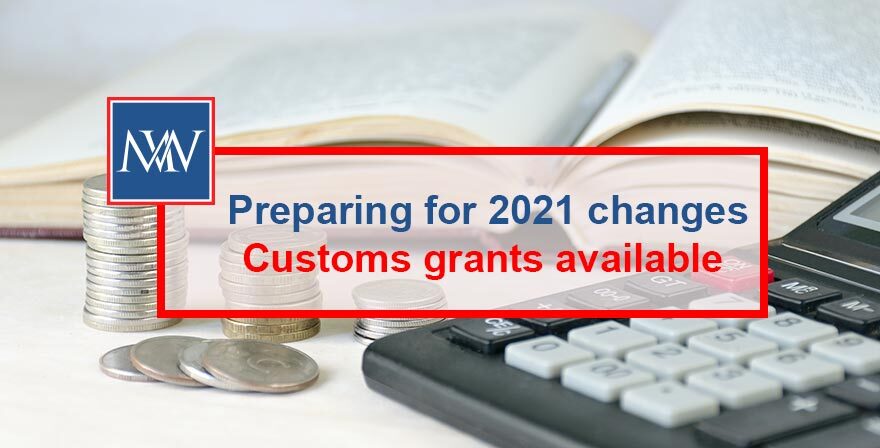
Preparing for 2021 changes: Customs grants available
In June 2020, the Government announced that it was making funding available to customs intermediaries and businesses to help increase their capacity to make customs declarations. Broadly, businesses need to prepare ahead of new procedures coming into play in 2021 following the end of the UK’s EU withdrawal transition period.
As well as injecting a substantial amount of cash to support businesses with recruitment, training and supplying IT equipment to handle customs declarations, the Government is also changing rules which will remove the financial liability from intermediaries operating on behalf of their clients, and will also allow parcel operators to continue declaring multiple consignments in a single customs declaration.
In August, to help accelerate further growth of the customs intermediary sector and help meet the increased demand it will see from traders at the end of the transition period, the Government confirmed that the next phase of the customs grant scheme is now open for application.
Who can apply?
To qualify for a grant a business must:
- have been established in the UK for at least 12 months before the submission of the application and when the grant is paid; and
- not have previously failed to meet its tax obligations.
In addition, the businesses must meet one of the following descriptions:
- complete or intend to complete customs declarations on behalf of clients;
- be an importer or exporter and complete or intend to complete declarations internally for their own good
- be an organisation which recruits, trains and places apprentices in businesses to undertake customs declarations.
The grant can cover salary costs for new or redeployed staff, up to a limit of £12,000 per person and £3,000 for recruitment costs for new employees. This will help them to recruit new staff and train them up ahead of July 2021, when all traders moving goods will have to make declarations.
In relation to training, the grant can provide businesses with up to 100% of the actual costs of externally-provided training for employees, up to a limit of £1,500 for each employee on the course. It will also cover the cost of internal training, up to a limit of £250 for each employee on the course.
The grant for IT covers expenses for increasing capacity or productivity for customs declarations, customs software, set-up costs, and related hardware.
There is a state aid restriction, which applies a cap on total grants received in the last three years at 200,000 euros (which is the maximum amount of state aid available).
Funding
The business will receive the funding for the cost of recruitment then 50% of the eligible salary costs once the grant offer is issued. The remaining 50% of salary costs will be paid when details of the new employee’s contract have been submitted along with a copy of their first payslip.
Evidence of expenditure on IT improvements or training will need to be submitted within two months of receiving a grant offer letter. The grant will then be paid directly to the business within 30 days.
Tax treatment
For tax purposes, the treatment of the grant will need to be matched to the expense and offset accordingly.
If the business has spent more on capital expenditure (like IT equipment) than is covered by the grant, capital allowances can be claimed on the amount not covered by the grant.
Early action
Eligible businesses should consider applying for a grant as soon as possible. Funding will be allocated on a first-come-first-serviced. Applications must be made by 3 June 2021, although the scheme, which is being administered by PricewaterhouseCoopers (PwC) on behalf of HMRC, will close earlier if all funding is allocated before that date.
Partner Note: Customs Grant Scheme applications: https://www.customsintermediarygrant.co.uk/
For more information on Customs grants, Book a Free Consultation
Need Accountancy Support?
For information on bespoke training, or if you have any other questions for Makesworth Accountant, please fill in your details below




















 148
148